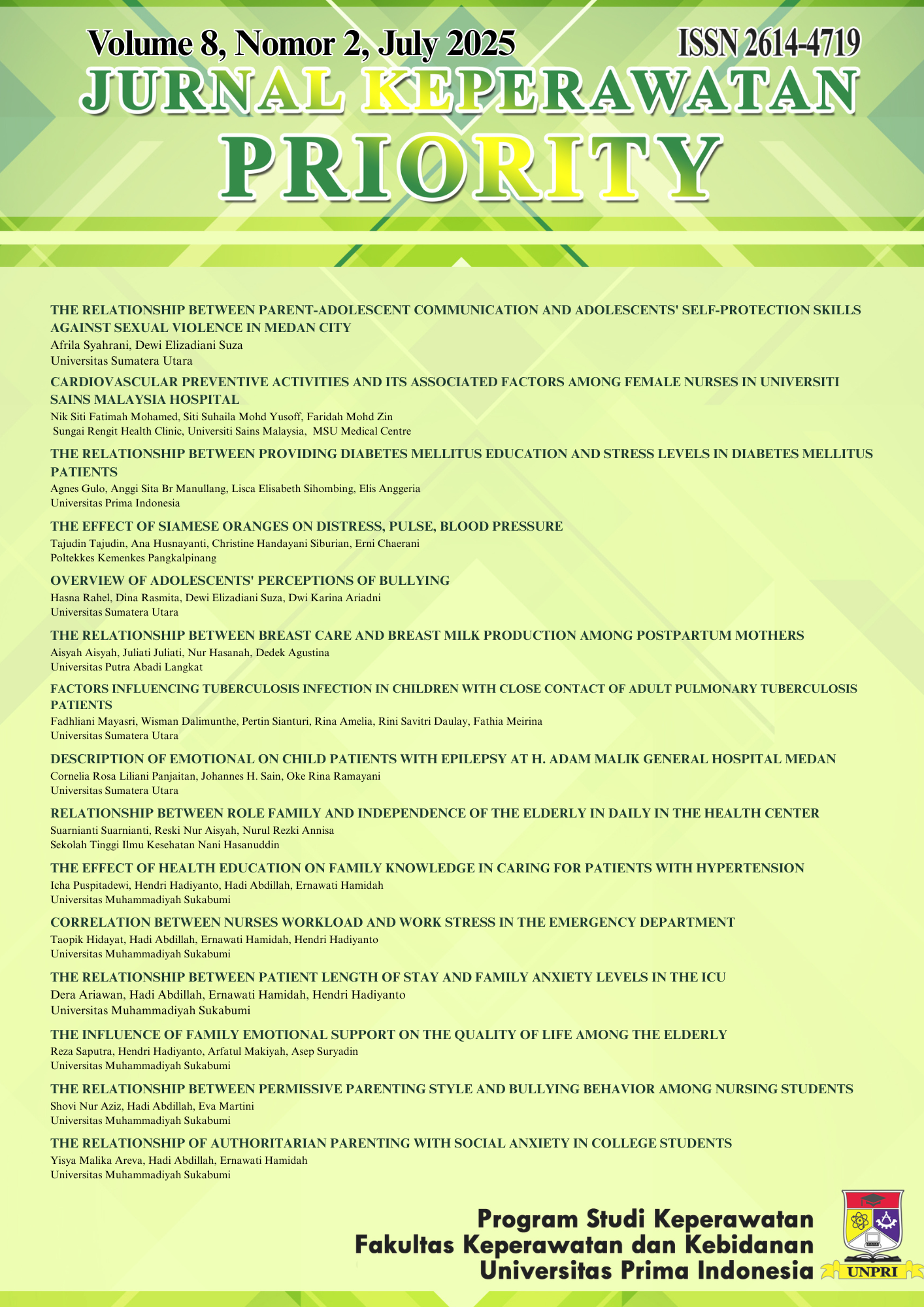The Influence of Family Emotional Support on the Quality of Life among the Elderly
DOI:
https://doi.org/10.34012/jukep.v8i2.6399Keywords:
family support, quality of life, elderly, familyAbstract
The Central Statistics Agency reported a continued rise in the elderly population in Indonesia, indicating a growing demographic shift toward an aging society. Alongside this trend, a considerable proportion of older adults have been facing various health challenges. Many elderly individuals reported experiencing health problems within a recent period, reflecting a notable level of morbidity among this age group. The Central Statistics Agency of Sukabumi City noted, based on the results of the 2020 census, the elderly population in Sukabumi City amounted to 42,275 people and in Cibeureum sub-district there were 4,518 people and in Cibeureum Hilir Health Center there were 300 elderly people, using quantitative descriptive collegiate with a cross-sectional approach. the results of the static test using the chi-square p> value were 0.002 < 0.05 that the form of attention, assistance, enthusiasm and motivation from the family played a role in improving the quality of life of the elderly. So, it can be concluded that there is a relationship of family emotional support to the quality of life of the elderly in the working area of the Cibeureum Hilir Health Center, Sukabumi City. The researcher assumes that if each respondent receives good family support, their quality of life will be better. Conversely, if the emotional support from the family is lacking, it will negatively affect the elderly's quality of life.
Downloads
Published
How to Cite
Issue
Section
License
Copyright (c) 2025 Reza Saputra, Hendri Hadiyanto, Arfatul Makiyah, Asep Suryadin

This work is licensed under a Creative Commons Attribution 4.0 International License.
Authors who publish their manuscripts through the Journal of Keperawatan Priority agree to the following:
- Copyright to the manuscripts of scientific papers in this Journal is held by the author.
- The author surrenders the rights when first publishing the manuscript of his scientific work and simultaneously the author grants permission / license by referring to the Creative Commons Attribution 4.0 International License to other parties to distribute his scientific work while still giving credit to the author and the Journal of Journal Keperawatan Priority as the first publication medium for the work.
- Matters relating to the non-exclusivity of the distribution of the Journal that publishes the author's scientific work can be agreed separately (for example: requests to place the work in the library of an institution or publish it as a book) with the author as one of the parties to the agreement and with credit to sJournal ofJournal Keperawatan Priority as the first publication medium for the work in question.
- Authors can and are expected to publish their work online (e.g. in a Repository or on their Organization's/Institution's website) before and during the manuscript submission process, as such efforts can increase citation exchange earlier and with a wider scope.


















